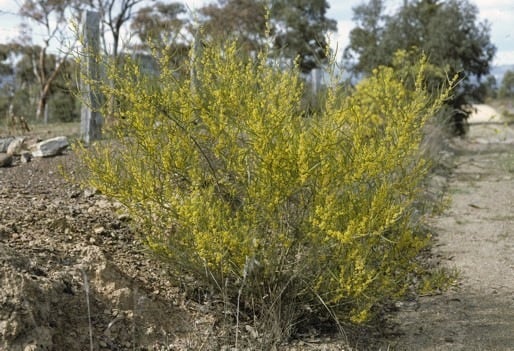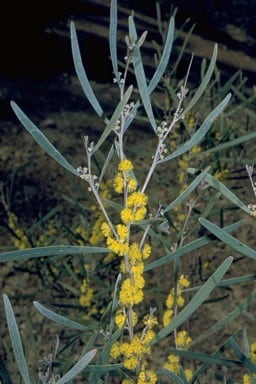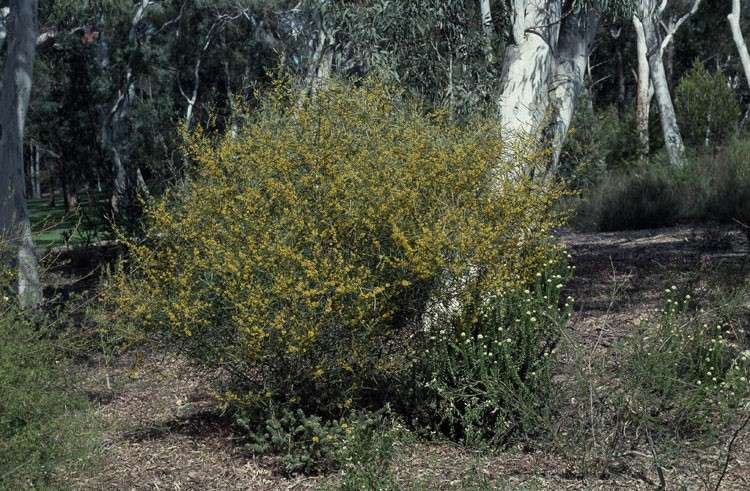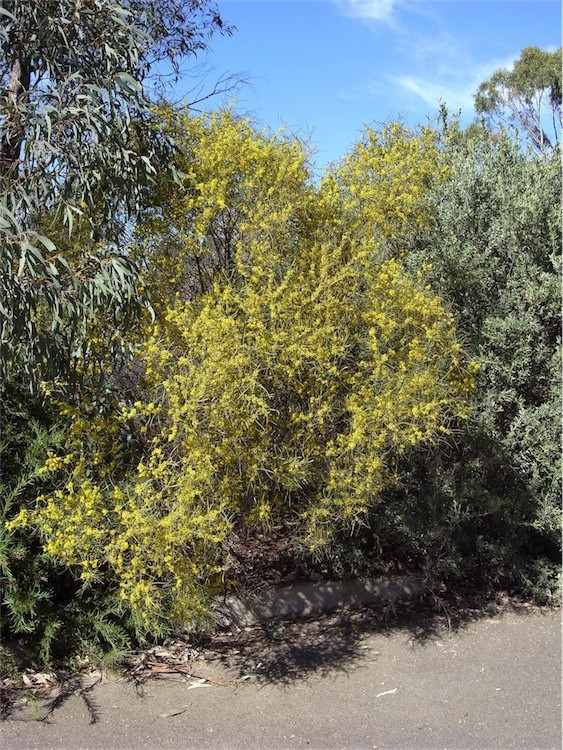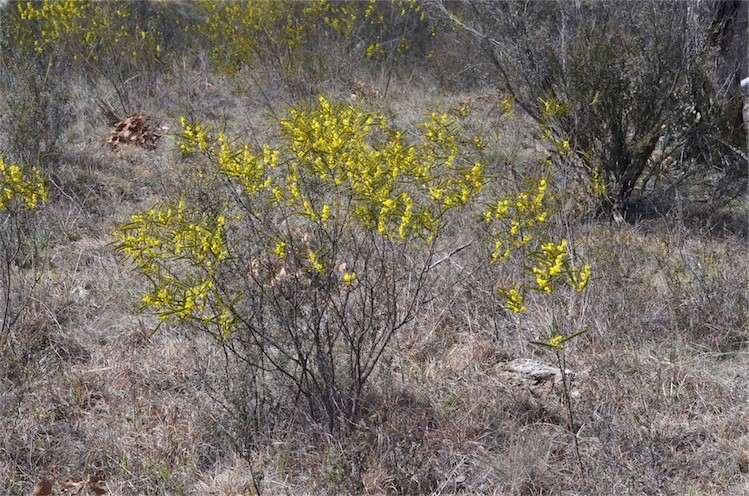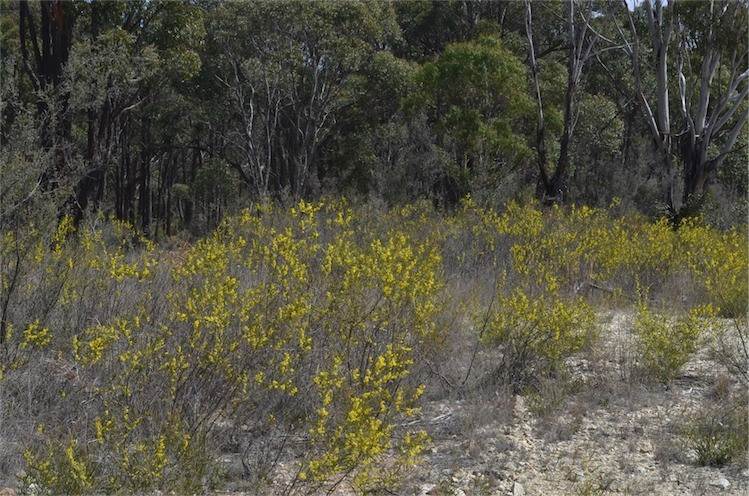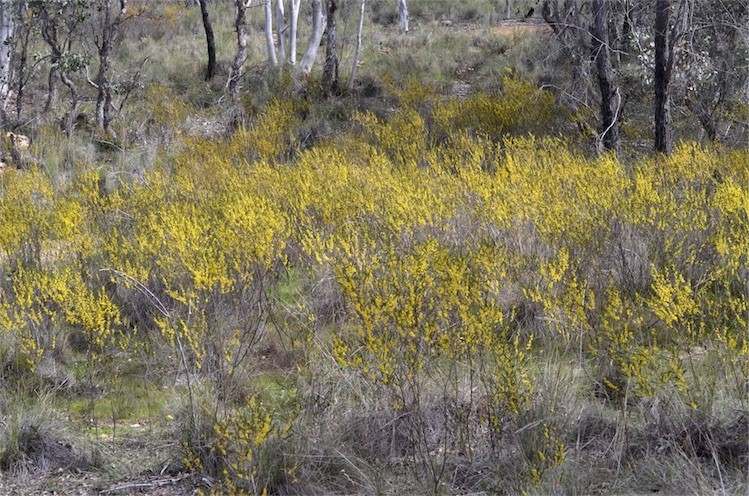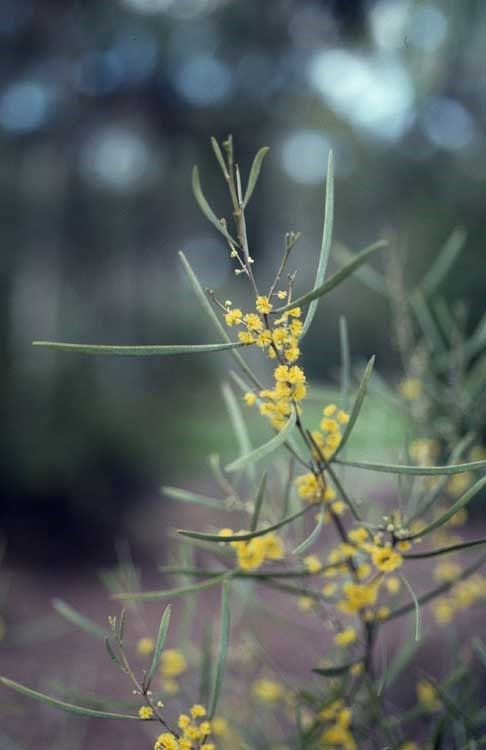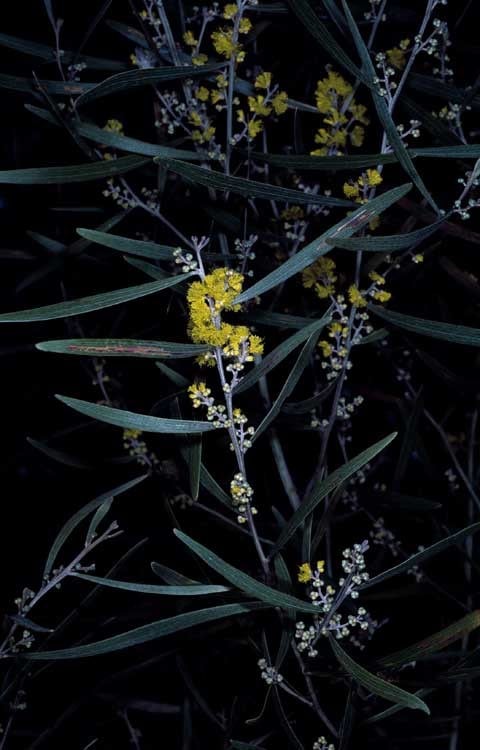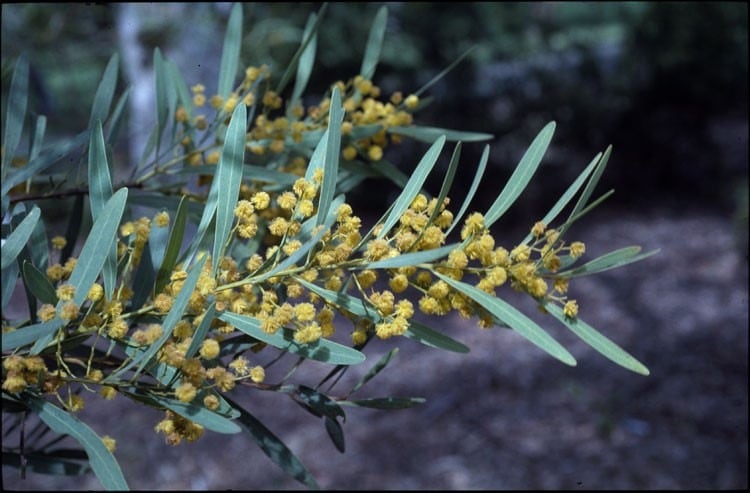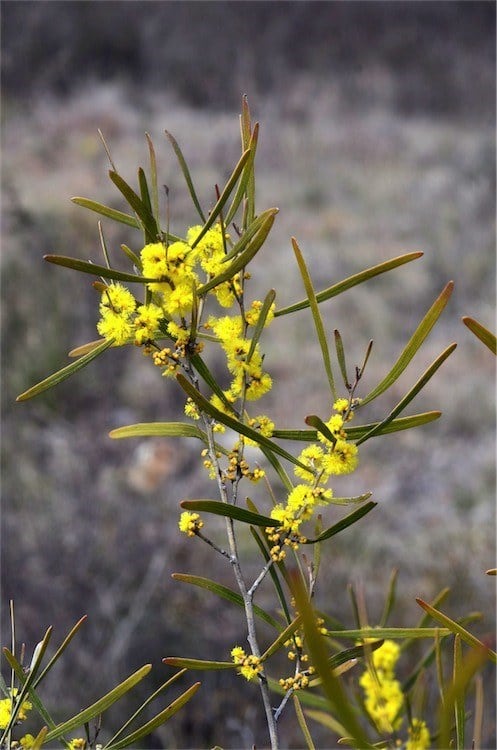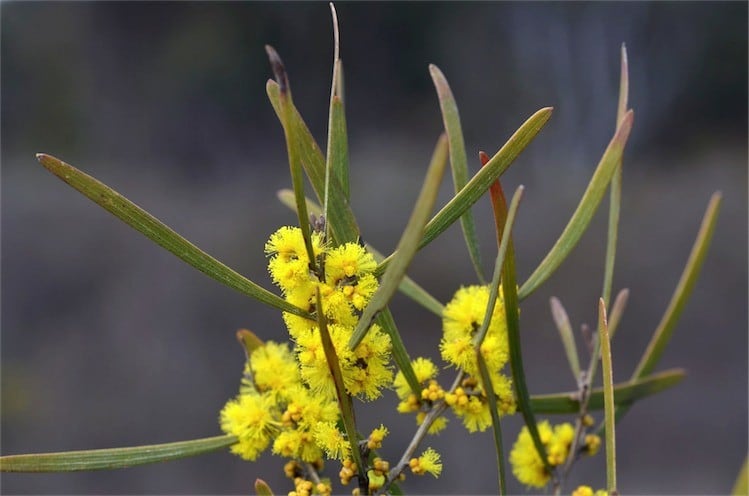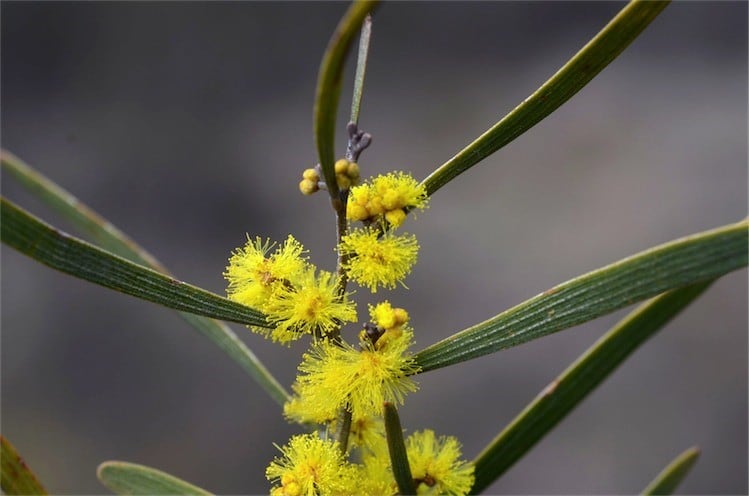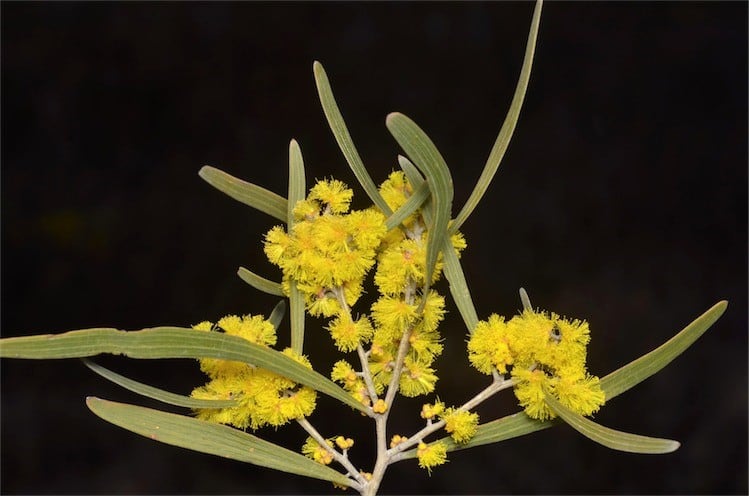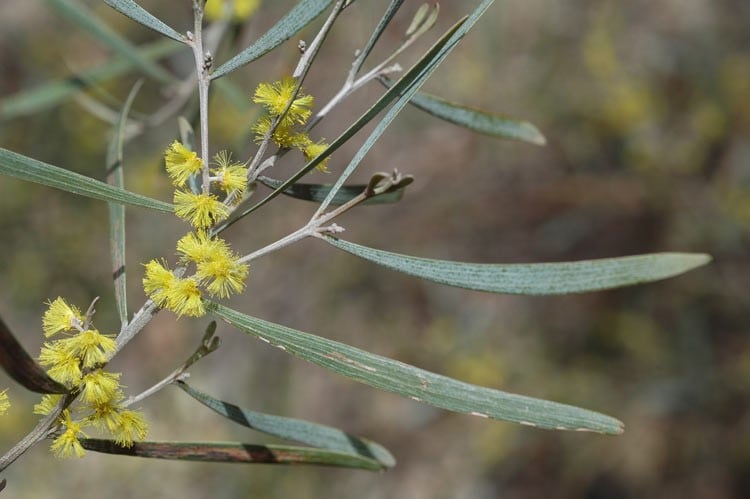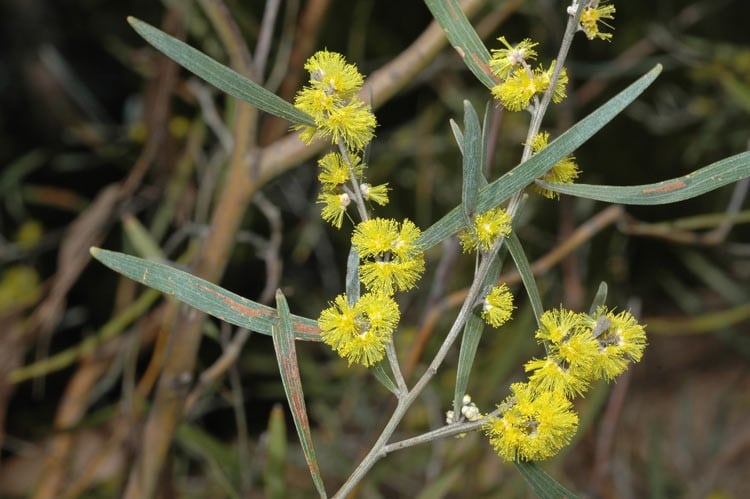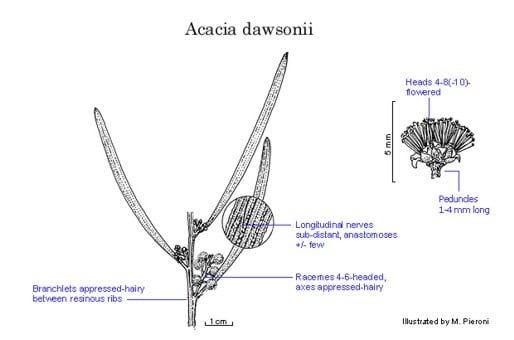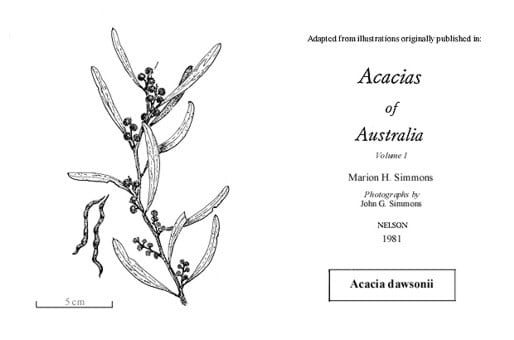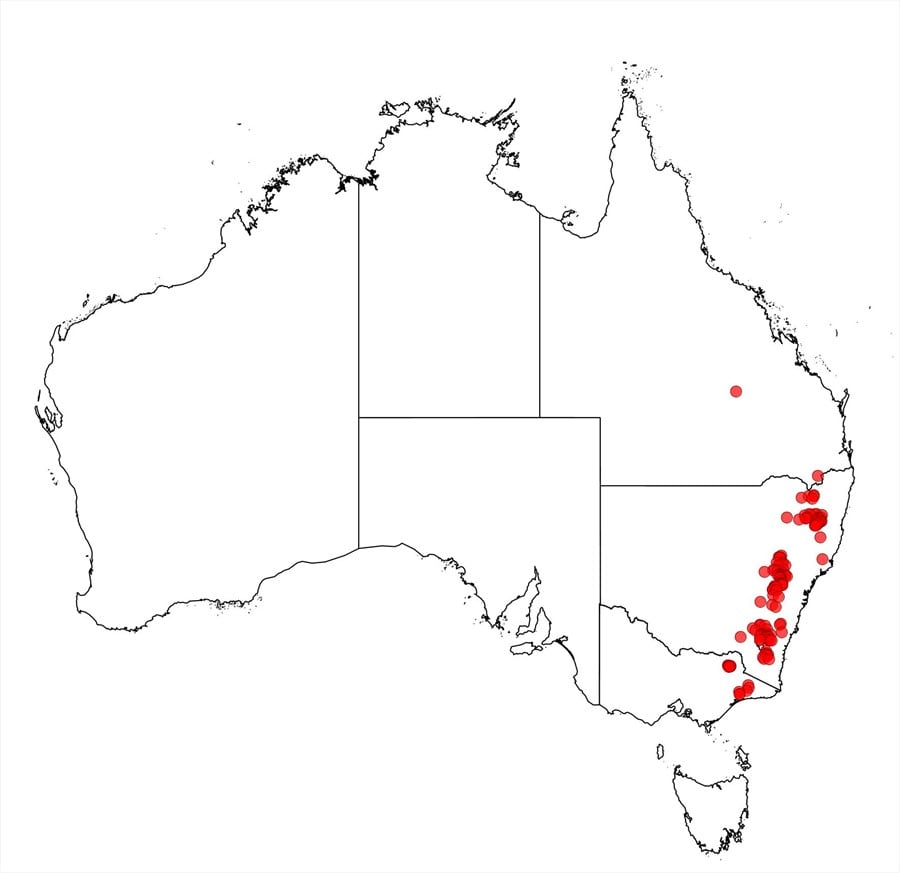Acacia dawsonii R.T.Baker
WATTLE
Acacias of Australia
Common Name
Poverty Wattle, Mitta Wattle, Dawson’s Wattle
Family
Fabaceae
Distribution
Occurs primarily on the N.S.W. and A.C.T. tablelands but extends to Mitta Mitta in Vic. and to Stanthorpe area in Qld.
Description
Shrub or occasionally tree 1–4 m high. Branchlets densely appressed-puberulous between the prominent resinous ribs. Phyllodes ascending to erect, linear to narrowly elliptic, straight to shallowly incurved, (3.5-) 5–11 (–14) cm long, (2–) 3–8 mm wide, thinly coriaceous, glabrous, with up to 10 slightly raised subdistant ±resinous main nerves of which 1–2 (-3) are more prominent than the rest, with occasional to frequent anastomoses between main nerves; gland single. Inflorescences 4–6-headed racemes; raceme axes 5–25 mm long, appressed-puberulous; peduncles 1–4 mm long, appressed-puberulous; heads depressed-globular, 3–4 mm diam., 4–8 (-10)-flowered, light golden, subtended by broad thick outer bracteoles. Flowers 5‑merous; sepals united only basally. Pods linear, straight or slightly curved, to 6 cm long, 2–5 mm wide, thinly coriaceous, smooth, glabrous. Seeds longitudinal, oblong, black; aril apical.
Habitat
Grows in poor, drier soils, often rocky and/or with high clay fraction, mostly in eucalypt woodland.
Specimens
Qld: Amiens near Stanthorpe, Harslett in G.Ward 287 (BRI n.v.). N.S.W.: Capertee, Sept. 1915, J.L.Boorman (C, NSW, PERTH); Cherry Tree Hill, c. 32 km NNW of Inverell, W.McReadie (NSW121810). A.C.T.: Molonglo Gorge, Kowen District, R.Pullen 2900 (MEL, NSW). Vic.: Mitta Mitta R., 2 km S of Mitta Mitta P.O., 3 June 1962, A.B.Court & J.H.Willis (MEL).
Notes
Seemingly related to A. farinosa which has thick, linear-oblanceolate phyllodes with the nerves immersed, as well as non-racemose inflorescences and usually more flowers in the heads, see R.S.Cowan & B.R.Maslin, Nuytsia 10: 79 (1995), for further details. The few-flowered heads of A. dawsonii with the subtending, broad and thick, outer bracteoles are similar to those of A. covenyi which differs in all other respects. Superficially similar to A. elongata.
FOA Reference
Data derived from Flora of Australia Volumes 11A (2001), 11B (2001) and 12 (1998), products of ABRS, ©Commonwealth of Australia
Author
R.S.Cowan, B.R.Maslin
Minor edits by B.R.Maslin & J.Reid
This identification key and fact sheets are available as a mobile application:
URL: https://apps.lucidcentral.org/wattle/
© Copyright 2018. All rights reserved.
